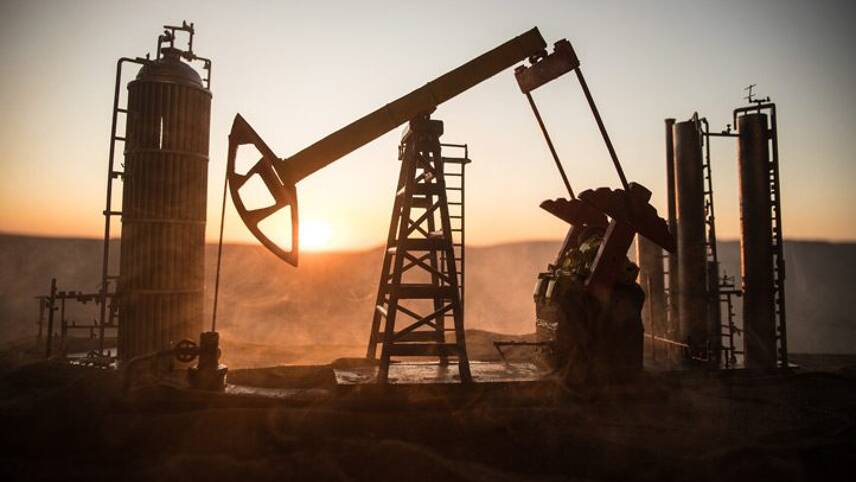Register for free and continue reading
Join our growing army of changemakers and get unlimited access to our premium content

Chief executives from leading oil and gas giants are set to meet with President Donald Trump today to officially ask for relief support in relation to Covid-19
UK-based thinktank InfluenceMap has begun assessing corporate lobbying that is responding to the Covid-19 crisis by calling for a rollback of climate policies. The group claims that lobbyists have been “highly active” in this chaos, namely those in carbon-intensive sectors.
The oil and gas sector is the “most active” by lobbying for both financial report and deregulation of environmental policies. A new briefing paper claims that US-based think tanks with ties to fossil fuel lobbyists including the Koch brothers are opposing green energy programmes in response to coronavirus. Groups such as the Texas Public Policy Institute and the Competitive Enterprise Institute, under the umbrella of newly formed Life:Powered project, have called for the US congress to delay and deregulate parts of the programme. Notably, the new umbrella coalition claimed that “climate change is not an immediate threat to humanity”.
The American Petroleum Institute has also issued a request that the US Environment Protection Agency waves reporting requirements in relation to environmental impacts of production, while Canadian oil companies have called for a delay to a planned increased in federal carbon tax in the country.
Chief executives from leading oil and gas giants are set to meet with President Donald Trump today to officially ask for relief support in relation to Covid-19. It is in response to global market prices for oil, which have slumped to its biggest collapse in almost 30 years.
The IEA has altered its oil market forecast in light of the impact of coronavirus and, where it was predicting an 825,000-barrel increase in daily demand, it is now anticipating that demand will be one million barrels less per day in 2020 than in 2019.
Specifically, BP has stated that it is currently the “most brutal environment for oil and gas businesses in decades” and has informed stakeholders that it could lose up to £800m in its first-quarter results. The Guardian is reporting that BP plans to reduce its spending by a fifth as a result.
Another response to Covid-19 has seen Shell pull itself out of the Lake Charles Liquefied Natural Gas facility in the US as it scrambles to respond to falling energy prices.
Considering Shell, Eni and Chevron have also announced multi-million or even billion spending freezes, the coming months could well see them renegade on committed spending on green projects, which some campaigners claimed were only introduced to appease stakeholder concerns.
Wider sector pressure
A new briefing from Greenpeace USA has claimed that some US industry groups are using Covid-19 to lobby that bans on plastic bags should be suspended.
Greenpeace claims that Competitive Enterprise Institute, Manhattan Institute, and American Energy Alliance have all been circulating new PR and studies that “explicitly warn anxious consumers that reusable grocery bags could be spreading coronavirus” and are therefore calling for single-use bags to be prioritised. The campaigners claim that those companies have “been known to work with” think tanks funded by fossil fuel companies.
Closer to home, the European Automobile Manufacturers Association (ACEA) includes BMW, Ford, Ferrari, Honda, Volkswagen and Volva amongst others as members. The ACEA looks set to ask for current legislative timelines for vehicle-related climate regulations to be relaxed. A letter to the European Commission stated: “If some manufacturers are being badly damaged and thousands of jobs were at stake, then, of course, there would be a debate on CO2 targets”, although the letter stresses this would be a future conversation rather than an immediate call for change.
The UK’s offshore oil and gas industry’s (OGUK) business outlook report has also argued that safeguarding the sector would be crucial to assisting with the UK’s net-zero emissions target. The group has been accused in the past of “overt lobbying” regarding the sector’s role in the UK’s net-zero emissions target.
In response to the cases of lobbying, calls are growing for nations to accelerate discussions regarding the uptake of a Green New Deal. Green groups claim that tackling inequality and poverty as part of a “just” low-carbon transition could avert future crises. Read why the Green New Deal is the perfect response for the post-Covid-19 economy here.
At a European level, the Green New Deal has recently been enshrined and includes a 50-55% emissions reduction target for 2030; a climate law to reach net-zero emissions by 2050; a transition fund worth €100bn and a series of new sector policies to ensure all industries are able to decarbonise.
However, the bloc-wide deal is facing delays. The European Commission is having to re-order its priorities in the face of the coronavirus crisis, with “non-essential” initiatives like the biodiversity strategy and the farm-to-fork strategy likely to be delayed by several weeks.
InfluenceMap references the EU Emissions Trading Scheme as an area of future dispute, claiming that “industry associations hit by the economic slowdown having reportedly already requested more flexibility in disclosing” through the scheme.
Matt Mace


Please login or Register to leave a comment.